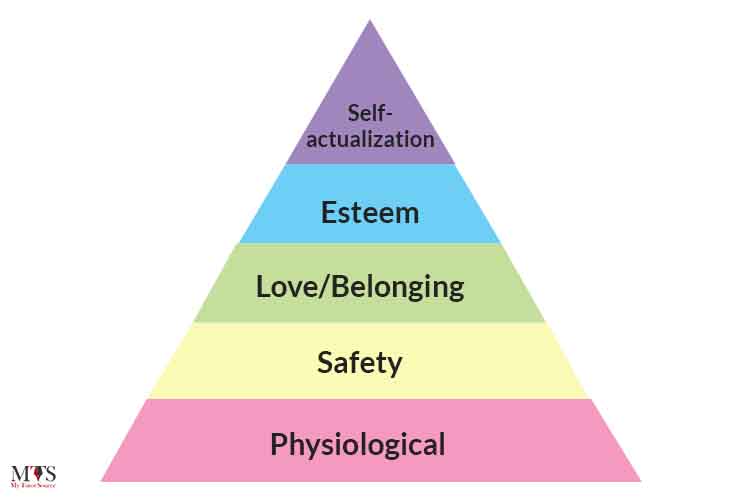Will Bouwman wrote: ↑Wed May 15, 2024 9:33 am
Immanuel Can wrote: ↑Thu May 09, 2024 3:37 pmWill Bouwman wrote: ↑Thu May 09, 2024 11:47 amIf your appreciation of Polanyi extends to agreement, you can't claim science as an objective source of evidence that "In the beginning, God created the heavens and the Earth."
If you are thinking that, then I have to point out that you haven't understood Polanyi. I do recommend you read him...
No need.
You would find it otherwise, if you did. If those articles are the sum of your resources, then I have to point out that you seem to have absorbed some rather wrong ideas about what he argues. But that may be the fault of the articles, not so much of you.
Immanuel Can wrote: ↑Thu May 09, 2024 3:37 pmYou seem unfamilar with the impossibility of an actual infinite regress. But mathematics, all by itself, demonstrates it absolutely.
You have laboured the point sufficiently that I understand your argument perfectly well. However many times you repeat it, it remains an argument from ignorance. We simply do not know what conditions existed prior to the big bang.
Your rejoinder makes obvious that you actually don't understand the argument. It doesn't depend at all on us knowing what happened prior to the BB...it only requires us to be able to do simple mathematics. But if you check it out, that's exactly what you will discover.
Immanuel Can wrote: ↑Thu May 09, 2024 3:37 pmWill Bouwman wrote: ↑Thu May 09, 2024 11:47 amSo, back to your list: Science isn't objective.
You'll need to explain that claim.
Again? It's all in the first of the two articles mentioned above. There are different elements to science. Essentially there are phenomena, measurement and hypotheses, all of which, Polanyi would say, we bring our tacit knowledge and passions to bear on. Whatever case might be made for phenomena and measurement being objective, hypotheses are completely subjective. There are always alternative hypotheses for exactly the same phenomenon, therefore all hypotheses are underdetermined.
Then you're using the word "objective" in a rather limited and partial way. You're seeming to use it to mean, "Known perfectly," or something like that. But science is empirical, which means the product of the interaction between humans and objective reality. That obviously means that human knowing can be right or wrong. Which it is, is not established by the mere dynamics of knowing, but rather by the correspondence of the knowledge in question to reality itself.
I can "think" that the world is round or flat. In both cases, the "personal" element that Polanyi talked about is implicated; however, one is right and one is wrong. One
reflects or
conforms to reality, the other
denies it.
Immanuel Can wrote: ↑Thu May 09, 2024 3:37 pmWill Bouwman wrote: ↑Thu May 09, 2024 11:47 amSpiritual experience isn't objective.
It's objectively real, or it's not.
It shouldn't be beyond you to appreciate the difference between an experience being objectively real, your interpretation of that experience being objectively true and your experience being and objective source of evidence that "In the beginning, God created the heavens and the Earth."
It's a very good thing I don't rely on my "experience" to reveal that, then.
You could make a case that it is "always objectively true whether or not one had an experience of X or Y", but you deciding it is spiritual is a subjective judgement
So far so good. But some "subjective judgments" conform to reality, and some do not.
and one biased by your obvious desire to attribute everything to a god you happen to believe in.

Well, biases are also two-sided things, Will. If, as you suppose, I have a "bias" in that regard, it may be a bias toward the truth, or a bias toward a falsehood: it's simply
ad homimem to suppose that one can dismiss an idea on the basis of denigrating the motives of the speaker, obviously.
Immanuel Can wrote: ↑Thu May 09, 2024 3:37 pmWill Bouwman wrote: ↑Thu May 09, 2024 11:47 amYou only have your personal reasons for believing that your god created the heavens and the Earth.
No, I DO have personal reasons, but I also have the entire list above: scientific, observational, logical, mathematical, spiritual and moral reasons, among others.
Your interpretation of all of them is personal.
"Interpretation"? Well, again, you need a better understanding of Polanyi's argument, I think. He's not at all one of the postmodern relativist set. But that seems to be how you're interpreting him. But logic and mathematics are not subjects of the "personal." My willingness to recognize that "2+2=4 will not alter reality in any way. Nor will a logical sequence, founded on a true set of premises and followed through validly lead to untruth. So the effects of things like "bias" can be reduced substantially or even eliminated by way of a rigorous use of those.
Immanuel Can wrote: ↑Thu May 09, 2024 3:37 pmYou really ought to acquaint yourself better with the whole field of apologetics, perhaps, Will. If I can say this nicely, without offense, you don't seem at all to know what's in there, or how any of it works. If you did, I think you'd be a lot more convinced, or at least more nuanced in any criticisms you offered, perhaps.
You don't have to eat the whole apple to know it's rotten.
I don't think you've even really had a bite. You don't seem to know much about the "apple," if I can say that without offense.


